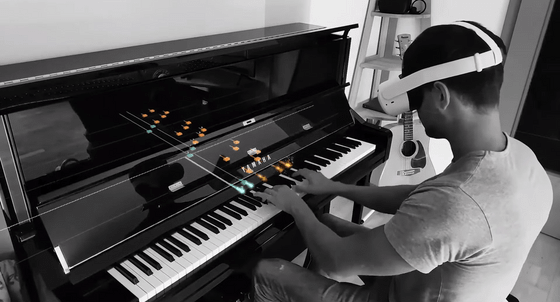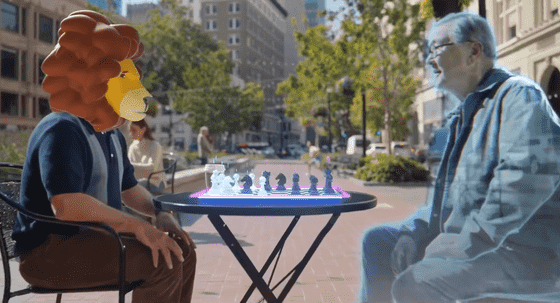What was the content of the interview with CEO Mark Zuckerberg two days before the Facebook name change?

On October 29, 2021, Facebook CEO Mark Zuckerberg
[FREE] An Interview with Mark Zuckerberg about the Metaverse – Stratechery by Ben Thompson
https://stratechery.com/2021/an-interview-with-mark-zuckerberg-about-the-metaverse/
In his keynote speech, Zuckerberg stated his vision to change the company name to Meta, with Metaverse , the new Internet, as its core business, and to continue to focus on connecting people with technology. After watching the keynote in advance, Mr. Thompson asked about the vision of CEO Zuckerberg.
Ben Thompson (Thompson):
I saw your presentation. I saw the content before this presentation was released worldwide, but I don't know the specific company name, so I won't see the changed name in this interview.
So who is this presentation targeted for? You have a vision for years to come, and there is no doubt that this is what critics call it a 'desktop theory.' Who do you want to show that vision to? Are you an employee? new employee? Investor? Developer? In any case, it seems that the vision will not be realized except for games.
Mark Zuckerberg CEO (Zuckerberg):
This presentation was intended to explain the vision we envision. We try to make this presentation different from traditional keynotes such as 'New Product Announcements of the Year' and give us a broader view of what we want to build. Was intended. I don't know how many years it will take, maybe 10 years, but please help me to make it happen.
Different people have different views on the meaning of the Metaverse. Therefore, I thought it was important to put together the most important things in building the metaverse, such as what is interoperable and what the business model should be, as one index, so I made this presentation.
Thompson:
You were also talking about the importance of interoperability and openness. However, I am worried that one company will provide the Metaverse. Do you think your vision really connects people and makes peer-to-peer? Also, do you think that if other companies realize the Metaverse, they will be interoperable as well?
Zuckerberg:
I think we will realize peer-to-peer. Regarding Metaverse, it cannot be said that Facebook, Google, etc. have built their own Internet, and it cannot be said that it is unique to Facebook. Each company is building a different infrastructure and hopes this will help the entire Internet. I think the elements of each of these companies need to work together in some way.
We are helping to build the technologies and platforms needed to make this possible. VR goggles, a platform for customers and creators, and of course SNS. I think the most important thing here is that all the new economies and societies brought about by the progress of digital technology can interoperate. In today's smartphones, the most basic unit is an app, as you can see from the fact that one app builds one world, isn't it? We hope that in the future, we will be able to establish user identities and seamlessly move between different apps and devices.

Thompson:
I feel that the line between online and offline has become increasingly blurry in the last few years, especially since the outbreak of the new coronavirus infection. People say they 'work from home,' but they are actually working online, and being online is a different place to be cognitively.
In such an environment, virtual reality (VR), which allows you to immerse yourself in virtual space, can be more important and meaningful than augmented reality (AR), which plays a role in connecting the real world with the real world. Do people want more time to immerse themselves in VR space?
Zuckerberg:
I think AR is actually more important. For example, AR is like a smartphone and can be carried anywhere. VR is something between a computer and a person that makes you feel more immersive in the screen.
I think you're potentially right, and I think VR will be important, but I don't think AR and VR are completely separate. What I talked about in the presentation is that people in AR space and people in VR space interact and achieve this between all the different computers.

Thompson:
What are the key challenges in achieving this vision? You're clearly pushing for developer marketing, but as I said, you're still building the basics, and some things like marketplaces and component sales in VR. You can not use it.
In order to bring something radically new to the market, we must explain why the old method is wrong and make the new rules known. How do you solve this problem? Do you have a vision for developers and users to definitely enter?
Zuckerberg:
Your claim is correct. I think it is necessary to introduce aspects that do not exist in this era to the technology to be built, and it is not possible to build the ideal VR space yet. Realization is at least a few years away, and it's likely that we'll finally be on the starting line. Usually, the hit product is not the first one. Even the iPhone made a big leap a few years after its announcement. We also made a big leap with
You asked 'Who is the keynote?', But I didn't mean to point it to anyone. Just betting intellectually and philosophically on what we are trying to build, I think there is something that gets caught for all viewers. Some are certainly aimed at employees and new hires, as we need to solidify our interests in realizing this vision. I want to start a new company and if anyone wants to do something like this, I think it will be the most exciting place for them.
I think it is very important for consumers to understand the use cases. If we do well, I think Quest will realize a VR space on a near-ideal scale in the not too distant future. If that happens, I think there are new use cases that are really exciting for users, such as 'fitting with a portable Quest.'

I think there are many issues such as training, education, and commerce to achieve this, but I think we can handle them over time. By 10 years, we think our VR devices will start to be much better than computers.
Thompson:
How is Facebook going to make money with the new Metaverse? You declared that you would spend a lot of time and money, but where does that money come from?
Zuckerberg:
After all, I think it's commerce. The first task we have to do is to get the basic technology working, but from a business perspective, the next thing we need to do is increase the GDP of the Metaverse as much as possible. By keeping prices as low as possible and giving creators as much advantage as possible, you can increase your GDP and get the amount of commerce and products you need by 10 years.
From a user experience perspective, providing an ideal VR space is the ultimate expression of social networks. That's why we're so excited and why we're focusing on this. I think we have a lot of things to build, and we think we have to push this for years.
Related Posts:
in Hardware, Software, Web Service, Posted by log1p_kr







